 A phenomenological approach to re-view psychopathology:
A phenomenological approach to re-view psychopathology:
We aim to explore the lived experiences on irregular perceptions of reality with an open mind. Each Saturday includes: a live dialogue between Prof. Ernesto Spinelli and an International Existential Therapist; a moment to share your thoughts and feelings with the teachers; and a final integration facilitated by Bárbara Godoy.
This series of ten dialogues set out to explore the multifaceted dimentions and complexities associated with Existential Therapies. It attempts to engage with various interpretations of insanity through the lens of patients often painful, confounding, and deeply unsettling life experiences.

TIMES AND DATES
✅25 Jan. “Knots” with Prof. Ernesto Spinelli
✅22 Feb. “Healing” with Dr. Michael Guy Thompson
✅ 22 Mar. “Difference” with Dr. Todd DuBose
✅ 12 Apr. “Polarisation” with Prof. Kirk Schneider
✅ 3 May “Character” with Prof. Robert Romanyshyn
✅ 21 Jun. “Opening” with Dr. Yaqui Martinez
✅ 19 Jul. “Meaning” with Dr. Jan Resnick
✅ 25 Oct. “Invention” with Dr. Betty Cannon
✅ 15 Nov. “Hallucination” with Prof. Simon du Plock
13 Dec. “Hysteria” with Bárbara Godoy
Full course – All 10 Dialogues & Experiential Study Group:
£1260 (2 pm to 5 pm – UK Time)
Only Dialogues:
£630 (2 pm to 3 pm – UK Time)
Venue: Online Zoom
Programme
List of International Existential Therapists. Topics and Dates.
Knots
between Prof. Ernesto Spinelli
and Bárbara Godoy
25 January 2025
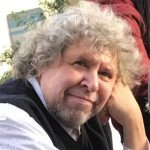 “As a starting point to this series of dialogues on insanity; I wanted to return to R. D. Laings brilliant book which was originally published in 1970. Knots consists of a series of dialogue-scenarios that can be read as poems or brief plays, each demonstrating the intricacies and insanities of human relationships. I would like to expand on Laings insights by exploring the professional relationship between therapist and client as yet another human relationship that, while constantly expanding (and expounding on) its intricacies, might do well to pay more attention to its accompanying insanities.” Prof. Ernesto Spinelli.
“As a starting point to this series of dialogues on insanity; I wanted to return to R. D. Laings brilliant book which was originally published in 1970. Knots consists of a series of dialogue-scenarios that can be read as poems or brief plays, each demonstrating the intricacies and insanities of human relationships. I would like to expand on Laings insights by exploring the professional relationship between therapist and client as yet another human relationship that, while constantly expanding (and expounding on) its intricacies, might do well to pay more attention to its accompanying insanities.” Prof. Ernesto Spinelli.
Prof. Ernesto Spinelli was Chair of the Society for Existential Analysis between 1993 and 1999 and is a Life Member of the Society. His writings, lectures and seminars focus on the application of existential phenomenology to the arenas of therapy, supervision, psychology, and executive coaching. He is a Fellow of the British Psychological Society (BPS) as well as an APECS accredited executive coach and coaching supervisor. In 2000, he was the Recipient of BPS Division of Counselling Psychology Award for Outstanding Contribution to the Profession. And in 2019, Ernesto received the BPS Award for Distinguished Contribution to Practice. His most recent book, Practising Existential Therapy: The Relational World 2nd edition (Sage, 2015) has been widely praised as a major contribution to the advancement of existential theory and practice. Living up to the existential dictum that life is absurd, Ernesto is also the author of an on-going series of Private Eye novels.
Recommended readings for “Knots”:
Bettelheim, B. (1993). The Art of the Obvious: Developing insight for psychotherapy and everyday life. London: Thames; Hudson.
Laing, R. D. (1970). Knots. London: Penguin Books
Szasz, T. (1973). The Manufacture of Madness: Comparative study of the inquisition and mental health movement. New York:
Harper & Row. (1974). The Myth of Mental Illness: Foundations for a theory of personal conduct (revised ed.). New York: Harper; Row.
Healing
between Dr. Michael Guy Thompson
and Prof. Ernesto Spinelli
22 February 2025
 “What does it mean to heal, properly speaking, in the context of an existential approach to psychotherapy and psychoanalysis? How can we take a term that we ordinarily associate with the object of medical treatment and apply it to conversations that are conducted between therapists and their patients with the aim to live a happier and healthy life? In this dialogue I want to explore the concept of healing by exploring the etymology of the word, “heal,” which is cognate with such terms as sane, sound, sanitary, cure, and whole, in order to offer a non-medicalized and diagnostically-laden notion of how an existential approach to psychotherapy may further a healthy way to live. To this end, I want to explore the relationship between health, healing, and sanity – all derived from the same etymological root – and how psychotherapy is not concerned with “treating illnesses,” but with furthering authenticity in our lives. I will argue that living a sane life assumes a life that is lived passionately, honestly, and authentically.” Dr. Michael Guy Thompson.
“What does it mean to heal, properly speaking, in the context of an existential approach to psychotherapy and psychoanalysis? How can we take a term that we ordinarily associate with the object of medical treatment and apply it to conversations that are conducted between therapists and their patients with the aim to live a happier and healthy life? In this dialogue I want to explore the concept of healing by exploring the etymology of the word, “heal,” which is cognate with such terms as sane, sound, sanitary, cure, and whole, in order to offer a non-medicalized and diagnostically-laden notion of how an existential approach to psychotherapy may further a healthy way to live. To this end, I want to explore the relationship between health, healing, and sanity – all derived from the same etymological root – and how psychotherapy is not concerned with “treating illnesses,” but with furthering authenticity in our lives. I will argue that living a sane life assumes a life that is lived passionately, honestly, and authentically.” Dr. Michael Guy Thompson.
Dr. Michael Guy Thompson, PhD, received his psychoanalytic training from R. D. Laing and associates at the Philadelphia Association in London, and served as the organization’s administrator from 1973–1980. He is Personal and Supervising Analyst and Faculty Member, Psychoanalytic Institute of Northern California, San Francisco, and former Adjunct Professor at the California School of Professional Psychology, San Francisco, and the California Institute of Integral Studies, San Francisco. He is the author of over 100 journal articles, book chapters, and reviews, as well as numerous books, including The Death of Desire: A Study in Psychopathology (1985), The Truth About Freud’s Technique (1994), The Ethic of Honesty (2004), The Legacy of R. D. Laing: An Appraisal of His Contemporary Relevance (Ed., 2015), The Death of Desire: An Existential Study in Sanity and Madness (2017, 2nd edition), an extensively revised and expanded edition of the original, and most recently, Essays in Existential Psychoanalysis: On the Primacy of Authenticity (2024), also published by Routledge. Most recently, Dr. Thompson is founder and director of New School for Existential Psychoanalysis, a certificate-based virtual training program modeled on his work with R. D. Laing in London, based in San Francisco. He founded Free Association, Inc. in 1988 in San Francisco to further the legacy of R. D. Laing, and inaugurated the annual R. D. LAING IN THE TWENTY-FIRST CENTURY symposium at Esalen Institute in 2015, to further the legacy and relevance of Laing’s contribution to contemporary psychiatry and psychotherapy. He lives in Berkeley, California. www.mguythompson.com
Recommended readings for “Healing”:
Thompson, M. Guy (2004) The Ethic of Honesty: The Fundamental Rule of Psychoanalysis. Amsterdam and New York: Rodopi Press.
Thompson, M. Guy (2017, 2nd Ed.) The Death of Desire: An Existential Study in Sanity and Madness. London and New York: Routledge.
Thompson, M. Guy (2024) Essays in Existential Psychoanalysis: On the Primacy of Authenticity. London and New York: Routledge.
Difference
between Dr. Todd DuBose
and Prof. Ernesto Spinelli
22 March 2025
 “Sanity and insanity have been situated in relation to each other on a hierarchical scale that privileges sanity over, beyond, above, and more than its “less than” subjugated copy, insanity. Framed in this way, insanity can only be stigmatized, devalued and pathologized, while sanity is that to which we are to strive, uphold, and genuflect. The therapoet as a phenomenological hermeneutic horizontalizes a spectrum of “sayings of suffering souls”, or “befallings”, which is the originally meaning of “symptom”, not as a pathogen to be excised. Countering supremacist hierarchies of sanity/insanity, or health/illness, the therapoet sees difference, not as deficient, but just different, anew, and not in relation to any centric norm, but just to other differences. The relation to other differences is a relative gradation, whose incomparability resists any kind of nothing-but-ism any more than a fish can be said to be nothing but a squirrel with fins, or dirt as nothing but dry water. The therapoet, therefore, attends to each showing or saying of the suffering soul, sufficient in itself, as it is, in its own way of presencing, by being with it, letting it be, without why.” Dr. Todd DuBose.
“Sanity and insanity have been situated in relation to each other on a hierarchical scale that privileges sanity over, beyond, above, and more than its “less than” subjugated copy, insanity. Framed in this way, insanity can only be stigmatized, devalued and pathologized, while sanity is that to which we are to strive, uphold, and genuflect. The therapoet as a phenomenological hermeneutic horizontalizes a spectrum of “sayings of suffering souls”, or “befallings”, which is the originally meaning of “symptom”, not as a pathogen to be excised. Countering supremacist hierarchies of sanity/insanity, or health/illness, the therapoet sees difference, not as deficient, but just different, anew, and not in relation to any centric norm, but just to other differences. The relation to other differences is a relative gradation, whose incomparability resists any kind of nothing-but-ism any more than a fish can be said to be nothing but a squirrel with fins, or dirt as nothing but dry water. The therapoet, therefore, attends to each showing or saying of the suffering soul, sufficient in itself, as it is, in its own way of presencing, by being with it, letting it be, without why.” Dr. Todd DuBose.
Dr. Todd DuBose is a world-renowned, Distinguished Full Professor at The Chicago School’s College of Professional Psychology. He teaches philosophical foundations of practices of care, ethics, loss and mourning, psychology and spirituality, psychopathology, among other courses, all from a human science perspective, and with a particular focus on therapoetic care. He is a licensed psychologist, supervisor, consultant, and former chaplain, with over thirty-five years of experience. He holds degrees in continental and comparative philosophy of religion and existential-hermeneutical-phenomenological human science clinical psychology and integrates these approaches as a way of caring for such experiences as the impossible (no way out, boundary or limited situations), extreme experiences (such as psychosis, nihilism, suicidal and homicidal ideation), and the taboo (the places no one wants to go: the unwanted and unacceptable, unsayable, unforgiveable, forbidden, and irreverent). He regularly presents workshops in several international venues such as the Circulo de Estudios en Psicoterapia Existential, in Mexico City, Mexico, the Zhi Mian International Institute of Existential-Humanistic Psychology in Dali, China, and the Centre for Existential Practice in Melbourne, Australia. He is widely published and has written on caring for others in very difficult situations including traumatic loss, surviving the COVID-19 pandemic, and meaninglessness. He has also written a short dialogue with Miles Groth, edited by Loray Daws, called, Dialogues on The Soul of Existential Therapy, published by The Society for Existential Analysis. Most of all, he considers himself simply a fellow human being.
Recommended readings for “Difference”:
DuBose, T. (2024). Súmptōma: From discrimination through destruction to transfiguration. In A. Cantú, E. Maisel, & C. Ruby (Eds.),Theoretical Alternatives to the Psychiatric Model of Mental Disorder Labeling: Contemporary Frameworks, Taxonomies, and Models (pp. 236 – C251). Ethics International Press.
DuBose, T. (2017). Can you tell a dragon fly about ice? The implications of Zhuangzi’s “relative gradations” for contemporary psychology. In Yang, M. Existential psychology and the way of the Tao: Meditations on the writings of Zhuangzi. New York: Routledge, pp. 166-182.
Vallega-Neu, D. (2018). Heidegger’s Poietic Writings: From Contributions to Philosophy to The Event. Indiana University Press. See, particularly, her commentary on Heidegger’s understanding of Unterschied (difference) and Unterscheidung (differentiation) , pp. 81,88, 89n15, 109, 110-112, 118, 149-150, 157, 159, 184-186.
Polarisation
between Prof. Kirk Schneider
and Prof. Ernesto Spinelli
12 April 2025
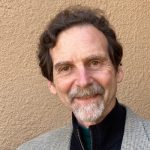 “I view polarization or that which I call the “polarized mind” as the fixation on a single point of view to the utter exclusion of competing points of view, and I see it as a core dimension of human destructiveness both individually and collectively. Arguably, polarization or the polarized mind is responsible for more devaluation and abuse than any other general psychological dimension, and it crosses cultures, parties, disciplines and so-called diagnosed and undiagnosed populations. In fact it is the undiagnosed populations—polarized cultural, political, and religious leaders and their followers–who have arguably caused the most human destructiveness by far, over those whom we conventionally termed the diagnosed The polarized mind may be partly dispositional but appears to be largely fear-driven and requires abiding presence and love to address it. We are in a race against time to avail people to these “nutrients.” Prof. Kirk Schneider.
“I view polarization or that which I call the “polarized mind” as the fixation on a single point of view to the utter exclusion of competing points of view, and I see it as a core dimension of human destructiveness both individually and collectively. Arguably, polarization or the polarized mind is responsible for more devaluation and abuse than any other general psychological dimension, and it crosses cultures, parties, disciplines and so-called diagnosed and undiagnosed populations. In fact it is the undiagnosed populations—polarized cultural, political, and religious leaders and their followers–who have arguably caused the most human destructiveness by far, over those whom we conventionally termed the diagnosed The polarized mind may be partly dispositional but appears to be largely fear-driven and requires abiding presence and love to address it. We are in a race against time to avail people to these “nutrients.” Prof. Kirk Schneider.
Prof. Kirk J. Schneider, Ph.D. is a leading spokesperson for contemporary existential-humanistic and existential-integrative psychology. Dr Schneider was a 2022 Candidate for President of the American Psychological Association (APA), a co-founder and current president of the Existential-Humanistic Institute (an award-winning psychotherapy training center), and a two-term Member of the Council of Representatives of the APA. He is also past president (2015-2016) of the Society for Humanistic Psychology (Division 32) of the APA, recent past editor of the Journal of Humanistic Psychology (2005-2012), a founder and frequent presenter/facilitator of the bridge-building dialogue approach the Experiential Democracy Dialogue and a trained moderator for the conflict mediation group Braver Angels. Dr Schneider is also an adjunct faculty member at Saybrook University and Teachers College, Columbia University and an Honorary Member of the Society for Existential Analysis of the UK and the East European Association for Existential Therapy. He received the Rollo May Award for “outstanding and independent contributions” to the field of humanistic psychology from the Society for Humanistic Psychology, APA and is a Fellow of seven Divisions of the APA (5, 9, 32, 42, 12, 29, and 24). His work on existential-integrative psychotherapy has been featured in a special issue of the Journal of Psychotherapy Integration (March 2016), as well as The Wiley World Handbook of Existential Therapy and the APA’s forthcoming Handbook of Psychotherapy. Dr Schneider has published over 200 articles, interviews and chapters and has authored or edited 14 books including The Paradoxical Self, Horror and the Holy, Rediscovery of Awe, Awakening to Awe, The Spirituality of Awe, The Polarized Mind, The Handbook of Humanistic Psychology, Existential-Humanistic therapy, Existential-Integrative Psychotherapy, The Wiley World Handbook of Existential Therapy, The Depolarizing of America: A Guidebook for Social Healing and his latest volume (February, 2023) Life-Enhancing Anxiety: Key to a Sane World. Dr. Schneider’s work has been featured in Scientific American, the New York Times, USA Today, The Guardian, Vanity Fair, Forbes Health, Psychology Today, BBC World News and many other health and psychology outlets.
Recommended readings for “Polarisation”:
Schneider, K. (2013). The Polarized Mind: Why It’s Killing Us and What We Can Do About It. University Professors Press.
Schneider, K. (2019). The Chief Peril is Not a DSM Diagnosis but the Polarized Mind. J. of Humanistic Psychology.
Schneider, K. (2023). Life-Enhancing Anxiety: Key to a Sane World. University Professors Press
Character
between Prof. Robert Romanyshyn
and Prof. Ernesto Spinelli
3 May 2025
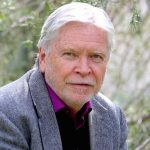 “I begin with the term psychopathology to emphasize that the word is about the logos—the thinking/speaking—about the sufferings of the psyche. To understand psychopathology, one must learn a foreign language, lend an ear as it were to a language that is complex, symptomatic, symbolic, and embodied. As complex, psychopathology reveals and conceals the sufferings of psyche. As symptomatic, psychopathology reminds one of things too important to forget but which are forgotten because they are too painful to remember. As symbolic, psychopathology is neither about facts nor ideas but about images, alchemical vessels that not only hold and contain psyche’s sufferings, but also cooks them. As embodied, psyche’s sufferings are inscribed in the flesh, etched as lines of character. To practice psychotherapy as an existential therapist situates therapist and patient in a dialogical field that is complex, symptomatic, symbolic, and embodied as a gestural field between them.” Prof. Robert Romanyshyn.
“I begin with the term psychopathology to emphasize that the word is about the logos—the thinking/speaking—about the sufferings of the psyche. To understand psychopathology, one must learn a foreign language, lend an ear as it were to a language that is complex, symptomatic, symbolic, and embodied. As complex, psychopathology reveals and conceals the sufferings of psyche. As symptomatic, psychopathology reminds one of things too important to forget but which are forgotten because they are too painful to remember. As symbolic, psychopathology is neither about facts nor ideas but about images, alchemical vessels that not only hold and contain psyche’s sufferings, but also cooks them. As embodied, psyche’s sufferings are inscribed in the flesh, etched as lines of character. To practice psychotherapy as an existential therapist situates therapist and patient in a dialogical field that is complex, symptomatic, symbolic, and embodied as a gestural field between them.” Prof. Robert Romanyshyn.
Prof. Robert D. Romanyshyn, an Affiliate Member of The Inter-Regional Society of Jungian Analysts, a Fellow of the Dallas Institute of Humanities and Culture, and a Professor Emeritus of Clinical Psychology at Pacifica Graduate Institute, was recently awarded the Distinguished Lifetime Contributions to Humanistic Psychology Award from the Society for Humanistic Psychology APA Division 32.
He has published eight books and numerous articles in psychology, philosophy, education, and literary journals. He is also a published poet and has written a one-act play about Frankenstein. In 2009 he created a multi-media DVD entitled Antarctica: Inner journeys in the Outer World, which offers a psychological reflection on the melting polar ice. In addition to online seminars and interviews, he has given lectures and workshops at universities and professional societies in the U.S., Europe, Australia, South Africa, Canada, and New Zealand.
Recommended readings for “Character”:
James Hillman (1999), The Force of Character and the Lasting Life. Ballantine Books.
David Brooks (2016), The Road to Character. Penguin
William Wordsworth (1800), ‘A Character’ – Poem
Opening
between Dr. Yaqui Martinez
and Prof. Ernesto Spinelli
21 June 2025
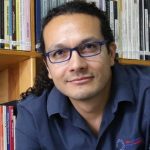 “From my early days studying psychology, I never felt comfortable with psychopathological nosologies. They seemed exaggerated to me and demonstrated the intense human desire to classify all possible expressions of our existence. Likewise, I have not been comfortable with the tendency to promote dualistic perspectives that compartmentalize our reality into separate aspects where one is not only different from the other but even in opposition, such as the sane/insane dichotomy. During this dialogue, I want to talk with Ernesto about the difficulties involved, from an existential-phenomenological perspective, in viewing the human condition from this position. Perhaps we can ask ourselves together what advantages they offer and what alternatives for openness we can propose.” Dr. Yaqui Martinez.
“From my early days studying psychology, I never felt comfortable with psychopathological nosologies. They seemed exaggerated to me and demonstrated the intense human desire to classify all possible expressions of our existence. Likewise, I have not been comfortable with the tendency to promote dualistic perspectives that compartmentalize our reality into separate aspects where one is not only different from the other but even in opposition, such as the sane/insane dichotomy. During this dialogue, I want to talk with Ernesto about the difficulties involved, from an existential-phenomenological perspective, in viewing the human condition from this position. Perhaps we can ask ourselves together what advantages they offer and what alternatives for openness we can propose.” Dr. Yaqui Martinez.
Dr. Yaqui A. Martínez-Robles is a psychologist with Masters, PhD and PsyD in Psychotherapy. He has training in Gestalt Therapy; Music Therapy; Transpersonal Psychology and Holotropic Breathwork (with the Grof Transpersonal Training Association); Narrative and postmodern therapies and Social Constructionism; and in Psychedelic-Assisted Therapy (with the Integrative Psychiatry Institute and MAPS-Multidisciplinary Association for Psychedelic Studies). He is the author of four books, and co-author of another two, focused on the existential perspective. He has participated with chapters in several books and with articles in several journals. Yaqui is the founder of the Circle of Studies in Existential Therapy, in Mexico City and in Medellin, Colombia,. He teaches existential-phenomenological psychology and therapy in Mexico and different countries of South America. He is the current president of the Latin American Association of Existential Psychotherapy (ALPE). He works in private practice as an existential-phenomenological therapist and coach, in modalities one-on-one, couples and groups.
Recommended readings for “Opening”:
Thomas Szasz (1961). The Myth of Mental Illness. Harper
Laing, R. D. (1965). The Divided Self: An Existential Study in Sanity and Madness. Harmondsworth, Middlesex: Penguin.
Michel Foucault (1967). Madness and Civilization. Signet
Meaning
between Dr. Jan Resnick
and Prof. Ernesto Spinelli
19 July 2025
 “Meaning-Fullness aims to develop an alternative approach to traditional psychiatric diagnosis of psychopathology through an understanding of the existential vacuum and a phenomenology of language and the body. There is a growing epidemic of mental un-wellness even though there has never been so many psychiatrists and psychologists available. This contradiction demonstrates how a bio-medical approach is far too limited at best and a radical mistake, at worst. Through the use of theory, philosophical discussion and case studies, Meaning-Fullness seeks to elaborate how mental disturbance and emotional suffering, traumatic and dissociative experience, emptiness and meaninglessness, can be understood differently and then worked with in psychotherapy. When an existential/phenomenological perspective informs the therapeutic relationship, terms like treatment, healing, cure, recovery, growth and development, can be seen in a different light from the standard narratives and take on a wholly different meaning.” Dr. Jan Resnick.
“Meaning-Fullness aims to develop an alternative approach to traditional psychiatric diagnosis of psychopathology through an understanding of the existential vacuum and a phenomenology of language and the body. There is a growing epidemic of mental un-wellness even though there has never been so many psychiatrists and psychologists available. This contradiction demonstrates how a bio-medical approach is far too limited at best and a radical mistake, at worst. Through the use of theory, philosophical discussion and case studies, Meaning-Fullness seeks to elaborate how mental disturbance and emotional suffering, traumatic and dissociative experience, emptiness and meaninglessness, can be understood differently and then worked with in psychotherapy. When an existential/phenomenological perspective informs the therapeutic relationship, terms like treatment, healing, cure, recovery, growth and development, can be seen in a different light from the standard narratives and take on a wholly different meaning.” Dr. Jan Resnick.
Dr. Jan Resnick is a senior psychotherapist, supervisor, and author. He has a PhD in Psychology (Psychoanalysis). As founder and Director of Training, he ran a Nationally Recognized and Accredited Registered Training Organisation called The Churchill Clinic for 18 years which became the largest such organisation in Australia for conferring post-graduate qualifications for training Psychoanalytic Psychotherapists. He was the Founding President of the Psychotherapists & Counsellors Association of Western Australia where he later received an Outstanding Achievement Award after serving 10 years on the Management Committee. He was an Editorial Advisory Board Member of the national journal
Psychotherapy in Australia for 20 years and currently, an Advisory Board member of Blue Knot Foundation (formerly ASCA – Adult Survivors of Child Abuse). He is accredited by the Royal Australian New Zealand College of Psychiatrists to supervise psychiatry registrars in psychotherapy and has taught in the Advanced Psychotherapy Training Program. He has presented at many conferences including last year in
Valencia, Spain for the International Association for Relational Psychotherapy and Psychoanalysis, also for the Mental Health Practitioners Network of Australia, and 3 times for the RANZCP Psychotherapy Section bi-national conference. He runs a supervision group for Psychiatrists practicing psychotherapy for the past 15 years and supervises Developmental Paediatricians at the State Child Development Centre in West Perth. He has presided over 4 mental health charities and has over 100 publications including two books. His book based on his clinical work as a couples’ therapist is How Two Love, Making your Relationship Work and Last. His latest book published by Karnac Books (Oxford) is called Meaning-Fullness, Developmental Psychotherapy and the Pursuit of Mental Health, an existential/phenomenological and relational approach based on his clinical work over more than 47 years.
Recommended readings for “Meaning”:
Resnick, J. Meaning-Fullness (2023). Developmental Psychotherapy and the Pursuit of Mental Health. Oxford: Phoenix Publishing House.
Heaton, J. M. (2010b). The Talking Cure: Wittgenstein on Language as Bewitchment and Clarity. Basingstoke, Hampshire: Palgrave Macmillan
Laing, R. D. (1965). The Divided Self: An Existential Study in Sanity and Madness. Harmondsworth, Middlesex: Penguin.
Invention
between Dr. Betty Cannon
and Prof. Ernesto Spinelli
25 October 2025
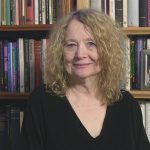 “When I first saw the topic of this year’s dialogues, I asked myself whether I had anything to contribute. After all, I told myself, I do not usually work with psychoses or other so-called ‘extreme’ or’ irregular’ states of consciousness. This started me thinking about a series of demonstration videos that I have been making with students and supervisees over the last couple of years as part of a book project. Do those videos display ‘extreme states’? To my surprise, the answer is yes. They are filled with experiences that might be described as hallucinations (positive and negative), dissociative states, paranoia, delusions, manic and depressive states, crippling anxiety, schizoid withdrawal, depersonalization and derealization, and body dysmorphic phenomena. Not to mention the so-called normal neurotic trances that Freud called transference, countertransference and defenses, psychedelically induced extreme states, and those nightly hallucinations, our dreams. So why did I not remember at least some of these states as being ‘extreme’? Perhaps the answer lies in my perspective on therapy, which is largely existential-phenomenological. I think that the following quote, from a letter that Sartre wrote to R.D. Laing, captures the essence of this perspective: “Like you, I believe that one cannot understand psychological disturbances from the outside, on the basis of a positivistic determinism or reconstruct them with a combination of concepts that remain outside the experience as lived and experienced. I also believe that one cannot study, let alone cure, a neurosis without a fundamental respect for the person of the patient, without a constant effort to grasp the basic situation and relive it, without an attempt to rediscover the response of the person to that situation and––like you, I think––I regard mental illness as the ‘way out’ that the free organism, in its total unity, invents in order to be able to live through an intolerable situation.”* When a client and I together are able to appreciate the true brilliance of this invention, my experience is that it not only normalizes the client’s experience, it also opens the doorway to change. It allows us to invent something new.” Dr. Betty Cannon.
“When I first saw the topic of this year’s dialogues, I asked myself whether I had anything to contribute. After all, I told myself, I do not usually work with psychoses or other so-called ‘extreme’ or’ irregular’ states of consciousness. This started me thinking about a series of demonstration videos that I have been making with students and supervisees over the last couple of years as part of a book project. Do those videos display ‘extreme states’? To my surprise, the answer is yes. They are filled with experiences that might be described as hallucinations (positive and negative), dissociative states, paranoia, delusions, manic and depressive states, crippling anxiety, schizoid withdrawal, depersonalization and derealization, and body dysmorphic phenomena. Not to mention the so-called normal neurotic trances that Freud called transference, countertransference and defenses, psychedelically induced extreme states, and those nightly hallucinations, our dreams. So why did I not remember at least some of these states as being ‘extreme’? Perhaps the answer lies in my perspective on therapy, which is largely existential-phenomenological. I think that the following quote, from a letter that Sartre wrote to R.D. Laing, captures the essence of this perspective: “Like you, I believe that one cannot understand psychological disturbances from the outside, on the basis of a positivistic determinism or reconstruct them with a combination of concepts that remain outside the experience as lived and experienced. I also believe that one cannot study, let alone cure, a neurosis without a fundamental respect for the person of the patient, without a constant effort to grasp the basic situation and relive it, without an attempt to rediscover the response of the person to that situation and––like you, I think––I regard mental illness as the ‘way out’ that the free organism, in its total unity, invents in order to be able to live through an intolerable situation.”* When a client and I together are able to appreciate the true brilliance of this invention, my experience is that it not only normalizes the client’s experience, it also opens the doorway to change. It allows us to invent something new.” Dr. Betty Cannon.
* From the Preface to Laing and D.G. Cooper’s book on the later work of Sartre, Reason and Violence.
Betty Cannon, PhD, is a licensed psychologist who has taught and practiced in Boulder, Colorado, for over 40 years. She is Professor Emerita of the Colorado School of Mines and president and founder of the Boulder Psychotherapy Institute, which has trained mental health professionals in Applied Existential Psychotherapy since 1989. In addition to existential philosophy, especially the philosophy of Sartre, AEP has roots in Gestalt therapy, classical and contemporary psychoanalysis, humanistic psychology (especially the person-centered therapy of Carl Rogers), and body-oriented psychotherapy. Betty is a member of the editorial boards of the Journal for the Society of Existential Analysis and Sartre Studies International. She is the author of Sartre and Psychoanalysis and numerous articles and chapters on existential therapy. Her mentor was Hazel E. Barnes, who translated Sartre into English and who was the world’s foremost Sartre scholar until her death in 2008. Betty is her literary executor, and her book on Sartre is dedicated to Hazel.
Recommended readings for “Invention”:
Laing, R.D. (1979, originally pub 1959). The Divided Self. New York: Penguin Books.
Laing, R.D. (1967). The Politics of Experience. New York: Pantheon Books.
Greenberg, J. (1964). I Never Promised You a Rose Garden. New York: New American Library
Fromm-Reichman, F. (1950). Principles of Intensive Psychotherapy. Chicago and London: University of Chicago Press.
Hallucination
between Prof. Simon du Plock
and Prof. Ernesto Spinelli
15 November 2025
 “The phenomenon of hallucination has been a subject of debate for centuries. It has been suggested that its function was one of revelation or prophesy, and those who hallucinated were often considered to have a ‘sacred’ affliction. In
“The phenomenon of hallucination has been a subject of debate for centuries. It has been suggested that its function was one of revelation or prophesy, and those who hallucinated were often considered to have a ‘sacred’ affliction. In
recent times, their function, at least in the West since the Age of Reason, has been often been reduced to primary indicators of schizophrenia and other forms of psychosis. Lumped into the ‘core phenomena’ of schizophrenia, the concern is not so much what they are, or what they mean to the client, or even their content, but their treatment and control. I will present an excerpt from my own clinical practice with a client who presented with distressing visual hallucinations. This piece of work illustrates how approaching such irregular perceptions of reality from an existential-phenomenological perspective can provide a way of understanding their meaning and purpose within a client’s lived experience.
I will suggest that such an approach also enables us to take a creative position regarding wider notions of sanity and madness, a position which enables us to navigate a path between, on the one hand, the medical model which typically focusses on reduction and management of hallucinations, and on the other hand, a Laingian view of hallucination as a route to ‘hyper-sanity’. Adopting such a path may enable us to work more confidently with clients when they present with unusual or disturbing perceptions.” Prof. Simon du Plock.
Prof. Simon du Plock is Senior Research Fellow at the Metanoia Institute, London. He was Head of the Faculty of Post-Qualification and Professional Doctorates at the Institute from 2007 to 2020, in which role he directed counselling psychology and psychotherapy research doctorates jointly with Middlesex University. He is a Fellow of the Royal Society for Medicine, a Foundation Member with Senior Practitioner Status of the BPS Register of Psychologists Specialising in Psychotherapy, and a Member of the BPS Register of Applied Psychology Practice Supervisors. He has been a BPS Chartered Counselling Psychologist and UKCP Registered Psychotherapist since 1994. He has authored nearly one hundred journal papers and book chapters on existential therapy, and he has co-edited Existential Analysis, the Journal of the British Society for Existential Analysis, since 1993. He was an editor of the 2019 Wiley World Handbook of Existential Therapy. He has lectured and trained internationally, and in 2006 he was made an Honorary Member of the East European Association for Existential Therapy in recognition of his contribution to cooperation between West and East Europe in the development of existential psychotherapy. His clinical and research interests include phenomenological research methodology, clinical and research supervision, existential pedagogy, and working with issues of dependency.
Recommended readings for “Hallucination”:
Cohn, H. C. (1997) Chapter 11, Withdrawal and Delusion, in Existential Thought and Therapeutic Practice. An Introduction to Existential Psychotherapy. London: Sage.
Du Plock, S. (2002) An Existential-Phenomenological Perspective on Visual Hallucination in D. Pringuey and F.S. Kohl, (eds) Phenomenology of Human Identity and Schizophrenia. Paris: Collection Pheno.
Du Plock, S. (1994) Smoke Without Fire: Towards an Existential-Phenomenological Approach to Hallucination. Existential Analysis, Vol. 6.2. Reprinted in du Plock, S. (ed.) (2002) Further Existential Challenges to Psychotherapeutic Theory and Practice, London: S.E.A.
Hysteria
between Bárbara Godoy
and Prof. Ernesto Spinelli
13 December 2025
 “In this dialogue, Bárbara Godoy and Prof. Ernesto Spinelli explore hysteria as a form of existential dissonance that emerges when lived experience exceeds the linguistic and cultural frameworks available to contain it. Drawing on the myth of Persephone, the early psychoanalytic encounter, and post-feminist critiques of the symbolic order (Cixous, Kristeva, Irigaray), the discussion examines how hysterical expression exposes a missing link in the chain of meaning — a rupture where the body speaks because language fails. The disappearance of “hysteria” in the DSM-III, the pressures of contemporary neoliberal narratives of optimisation, and the patriarchal architecture of symbolic discourse all serve as a backdrop for reconsidering how therapy might honour experiences that resist integration. Through myth, embodiment, and creative practices inspired by the Nine Muses, this dialogue invites a rethinking of the therapeutic encounter as a space where affect, dissonance, and emergent meaning can find form without being colonised by pre-existing cultural narratives.” Bárbara Godoy.
“In this dialogue, Bárbara Godoy and Prof. Ernesto Spinelli explore hysteria as a form of existential dissonance that emerges when lived experience exceeds the linguistic and cultural frameworks available to contain it. Drawing on the myth of Persephone, the early psychoanalytic encounter, and post-feminist critiques of the symbolic order (Cixous, Kristeva, Irigaray), the discussion examines how hysterical expression exposes a missing link in the chain of meaning — a rupture where the body speaks because language fails. The disappearance of “hysteria” in the DSM-III, the pressures of contemporary neoliberal narratives of optimisation, and the patriarchal architecture of symbolic discourse all serve as a backdrop for reconsidering how therapy might honour experiences that resist integration. Through myth, embodiment, and creative practices inspired by the Nine Muses, this dialogue invites a rethinking of the therapeutic encounter as a space where affect, dissonance, and emergent meaning can find form without being colonised by pre-existing cultural narratives.” Bárbara Godoy.
Bárbara Godoy M.A., Adv. Dip. Exi. Psy, UKCP accredited Psychotherapist and Supervisor, SEA – Founder Director of Therapy Harley Street. Bárbara’s academic experience in London since 2008 includes lecturing and researching on the theory and practice of Phenomenological Existential Therapy on Doctorate, MA and professional courses at the School of Psychotherapy and Counselling Psychology, Regent’s University and the New School of Psychotherapy and Counselling directed by Emmy van Deurzen. Bárbara has facilitated therapeutic Group Work internationally since 1997. The question about the meaning of Being-Woman was the topic of her thesis completed in 2005 and evolved into her Women’s Groups which she leads in addition to her individual private practice. Currently, as the Clinical Director of THS, Bárbara leads a team of over 40 professional practitioners in the area of Psychological services and Wellbeing consultancy. Bárbara is also the Founder Director of THS’s Personal and Professional Development Programmes.
Recommended readings for “Hysteria”:
Cixous, H., & Clément, C. (1986). The Newly Born Woman. University of Minnesota Press.
Han, B.-C. (2015). The Burnout Society. Stanford University Press.
Scarry, E. (1985). The Body in Pain: The Making and Unmaking of the World. Oxford University Press.
